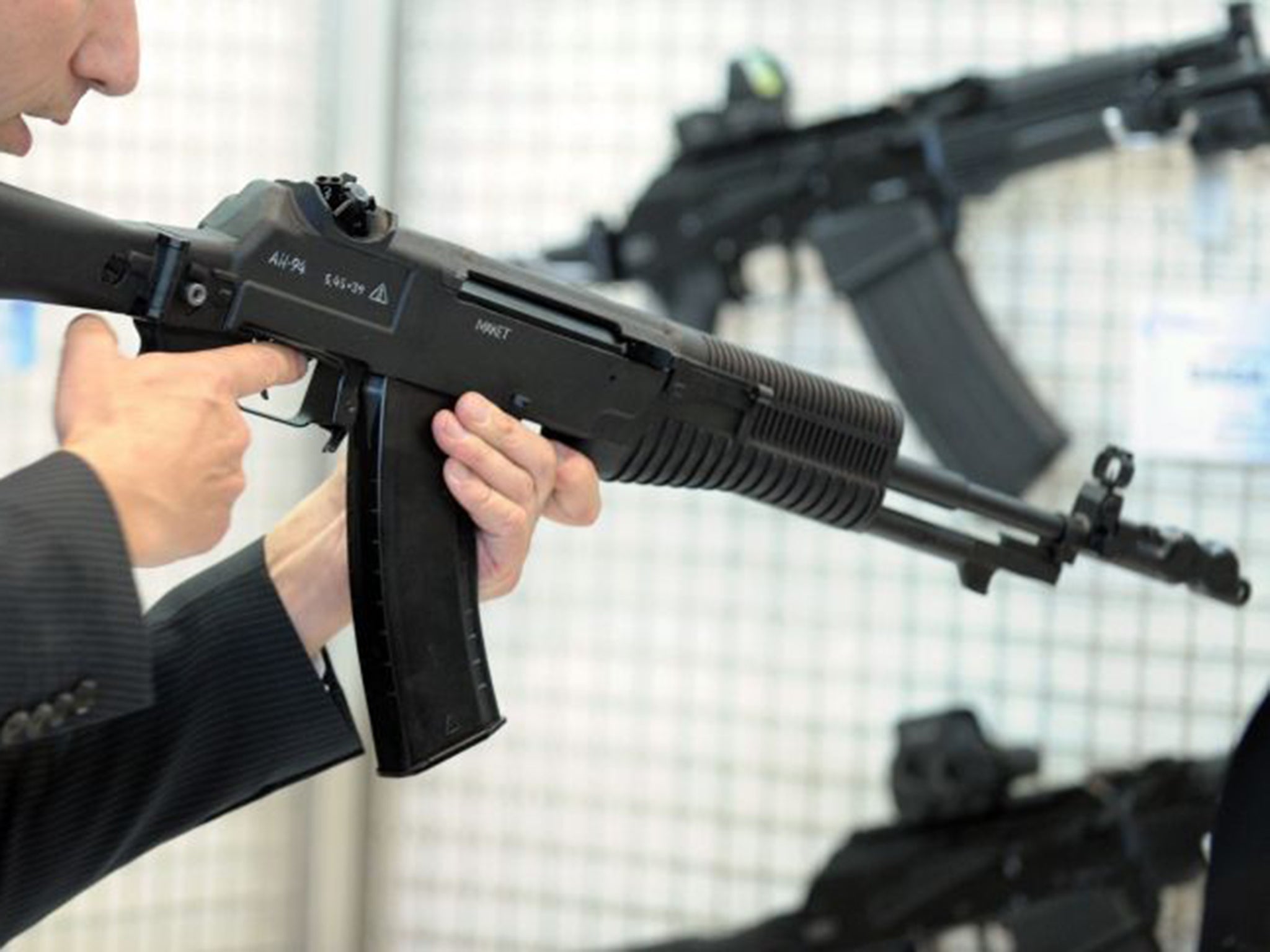Paris terror attack: Why getting hold of a Kalashnikov is so easy
The attacks raise the question of how such powerful firearms get into countries with apparently strict gun laws

Europe likes to see itself as a post-conflict continent where civilians rarely have contact with guns and other weapons, yet the Kalashnikov rifles used in the Paris attacks raise the question of how such arms are getting into countries with apparently strict gun laws.
The answer is usually the black market or the criminal underworld. “It can be very easy to get hold of a Kalashnikov in this city,” says Nils Duquet, an arms expert from the Flemish Peace Institute, a Brussels-based research group. “If you have the right criminal contacts, then you can pay as little as €1,000 for one.”
Molenbeek, the troubled Brussels commune that harboured many of Paris attackers, is known for gangs that sell everything from drugs to guns, although the Brussels-South train station is also known for its thriving clandestine market. “But you can’t just buy them on street corners,” Mr Duquet says. “You need to build trust. The Paris attackers probably did that through the gangs, or through their time in prison.”
Such black market guns come from many sources. Some are stolen, from gun shops, individuals or even police and army arsenals. Some are home made, like those assembled by Nordine Amrani who went on a shooting spree in the Belgian city of Liège in 2011. In future, the increasing sophistication of 3D-printers in the manufacture of weapons will become a challenge.
But currently most are imported leftovers of the Balkan wars of the 1990s, which left millions of weapons in civilian hands. Many held on to their guns, often out of fear that the conflict would restart. The region’s overall population of around 25 million holds up to 6.2 million firearms, according to the Geneva-based Small Arms Survey.
“Private ownership of firearms remains high there,” said Nicolas Florquin, a researcher for the group. “However, firearms from the Balkans may have entered criminal networks several years ago.”
Other conflict areas at Europe’s borders could provide a fresh source of arms: earlier this year, Europol, the EU police agency, warned that the conflicts in Libya and Ukraine could lead to more military grade firearms and explosives becoming available to terrorists.
Updates also stimulate the market. “Whenever Russia upgrades the Kalashnikov, older versions end up on the black market,” said Kathi Lynn Austin of Los Angeles-based Conflict Awareness Project. “There is a long history of leakage from Russian and eastern European stockpiles.”
The rules have been tightened over the years. In France, individuals are banned from owning military-class arms, while buyers of handguns or hunting rifles must pass stringent checks. Until 2006, when the law was changed, any Belgian could buy a gun simply by showing an ID card.
The Paris attacks have now spurred a new EU-wide push to tighten laws. Last week EU justice and home affairs ministers backed plans to make it harder to acquire weapons. Another key area concerns rules de-activating guns for sale to collectors: at least one officially deactivated weapon was put back into service in Belgium and used in the Charlie Hebdo attacks.
Other measures include stricter rules on buying arms or ammunition over the internet and common EU standards for marking weapons to make them easier to trace. There is also a plan to tie the EU into Interpol’s centralised tracking system, which records all firearms lost, stolen or trafficked.
Subscribe to Independent Premium to bookmark this article
Want to bookmark your favourite articles and stories to read or reference later? Start your Independent Premium subscription today.

Join our commenting forum
Join thought-provoking conversations, follow other Independent readers and see their replies